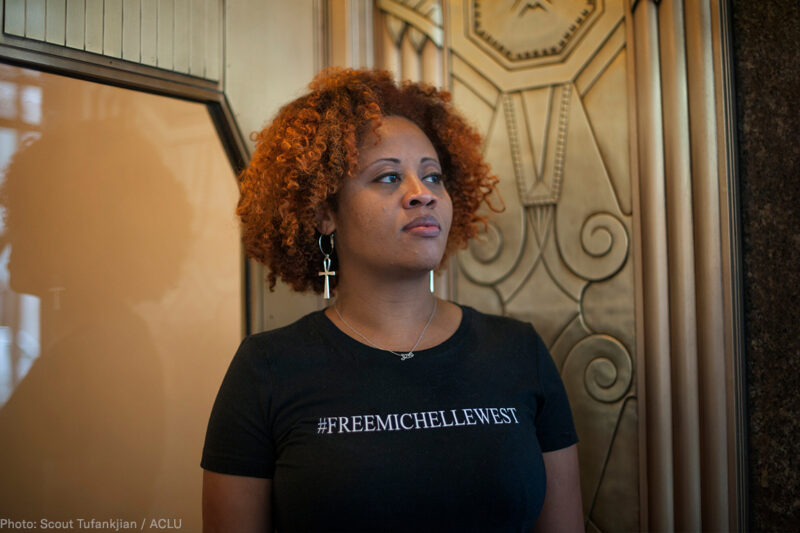Women Who Have Been Through the Criminal Justice System Need Support, but They Aren’t Getting It


Women aren’t often included in discussions of the criminal justice system, but they face huge hardships while incarcerated and after their release. I would know: I spent the ages of 19 to 29 in federal prison. Now, eight years later, I am a nationally licensed and certified clinical laboratory scientist and a proud mom, but my journey to this point wasn’t easy.
I’ve seen firsthand how the criminal justice system fails women in prison by not providing mental health resources and education. Then it fails them again by not providing reentry support.
Read a report on Women’s Mass Incarceration
That’s why I started Operation Restoration, which helps women and girls pursue an education as they reenter society after incarceration. Founded in 2016, we support our clients at every stage of the reentry process, from providing them with clothing to helping them enroll in college and pay for their books. I started Operation Restoration to provide women and girls with the kind of support and resources that I needed but didn’t have access to when I got out of prison.
I grew up in the small town of Vacherie, Louisiana. My mom was a judge and my dad worked as a supervisor at an oil refinery. I always excelled in school, and at 18, I was awarded a college scholarship to pursue physics and engineering. On the surface, I seemed like a young woman on the path to success.
But beneath that shiny veneer, I wasn’t doing so well.
At 14, I was diagnosed with PTSD related to abuse I had been subjected to as a child. That trauma was never dealt with. As a result, I started drinking heavily and falling in with the wrong crowd. I completed a semester of college but soon got entangled in a bad relationship. I dropped out and enlisted in the Navy in order to escape. Not long after, I made a decision that would change the course of my life forever: I joined some friends in stealing cars and burning down a car dealership.
Like so many other incarcerated women, I entered prison dealing with mental health issues and past trauma. I continued to struggle with PTSD, but there were no resources in prison to help me recover. I became aggressive and started fighting a lot. I got in trouble all the time and spent an entire year in solitary confinement.
I was fortunate enough to be transferred to a different prison where I could take classes offered by Tallahassee Community College. It changed my life. I felt lost for so long, but being able to pursue my education gave me purpose. I stopped getting in trouble and earned high grades in my classes. By the time I was released from prison, I knew that I would never go back.
But life after prison presented even more challenges. The world had changed while I was incarcerated. I felt isolated from my family and the people I had known before. I didn’t know how to use a cellphone or Google something. Not even New Orleans, a city that I loved, felt familiar. I had gone to prison before Hurricane Katrina, and some of the things that I thought would anchor me upon my release no longer existed.
Unless there are better services for women coming out of prison, the community, families, and children all suffer.
To make matters worse, there didn’t seem to be many resources available to help me get back on my feet. Everyone needs help reentering into society after prison, but when formerly incarcerated women lack resources there can be especially huge ramifications. Incarcerated and formerly incarcerated women are so often ignored, but the demands on them upon release are vast. They are expected to put the family back together, care for children, and support other family members who may be incarcerated. Unless there are better services for women coming out of prison, the community, families, and children all suffer.
Since being released from prison, I have gone back to school and started a successful career. A lot of people are surprised when they learn about my past. They say that I’m not what a formerly incarcerated person is supposed to be like. But my story is not unique. There are so many formerly incarcerated women out there just like me. We all want respect, need support, and, most importantly, deserve the chance to live a meaningful life without unnecessary barriers.
This article is part of a series featuring women’s perspectives on incarceration. Read a report on the drivers of women’s incarceration.

